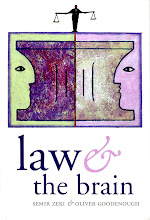I just heard the tail end of a talk on BBC Radio 3, during which the speaker seemed to lament the very brief period that the average viewer spends in front of one of the world’s most famous paintings, the Mona Lisa.
Apparently, when the painting was in Japan in the 1970s, the average time spent by the viewer was 30 seconds, while at the Louvre (where it is housed), the average time is 15 seconds.
Does this show that the average viewer is not interested in the painting, or that the main interest lies in being able to say that he or she had seen it, as a famous art critic once argued?
Or is there, perhaps, another interpretation as well?
Perhaps part of the reason lies in the power of the visual image, and its ability to give a great deal of knowledge even after a very brief viewing, because the visual brain is so well developed and can acquire so much knowledge over very brief periods of time. After all, volumes of writing on the Mona Lisa will not give the same information and knowledge that a few seconds of actual viewing does.
Some of the most beautiful segments in symphonic works last but a few seconds and yet are experienced as beautiful and emotionally arousing. Why shouldn’t a visual image do the same?
I do not deny the fact that many want to view the Mona Lisa or Michelangelo’s Pietà at St Peter’s Basilica just to be able to say that they have seen it.
But it is equally rash to deny the huge efficiency of the visual brain, which allows the average viewer to obtain a great deal of knowledge through such a brief viewing.
Sunday, August 21, 2011
A very interesting article on financial “irrationality”
I read quite a few articles on the economy and the economic crisis. Most of them seem soberly written, and pretend to be analyzing the situation in informed, rational ways. And most of them show little understanding of why we are in an economic abyss and do not seem to be able to predict the future accurately. These articles perhaps seem convincing because they are, on the surface at least, apparently rationally written.
Only very, very few acknowledge the irrationality of the system. How could a system, devised by whizz-kid mathematicians employed by major banks and financial institutions be so irrational? After all, before they answer your questions, these kids grab the slide ruler or its modern equivalent to give you a precise, rational, answer.
An excellent article by Danny Schecter is a refreshing departure, because it acknowledges explicitly that the financial system is driven by greed and fear and arrogance. Greed and fear are emotional states that are difficult to analyze rationally. As I have argued here before, greed and its pursuit are very likely accompanied by de-activation of large parts of the brain, and specifically the parts concerned with judgment. Hence the actions and decisions taken by those in this state – especially when the prize is untold riches – is considered irrational, at least when analyzed by people who are not themselves in that state.
But is it really irrational? Yes, if you judge it by the standards of rational judgment. But I think that emotional behaviour has its own logic and rationality, which we commonly fail to understand, precisely because we analyze it with our rational brains.
But no, they are not irrational, if judged by other standards. Would one financial wizard, consumed by greed, consider it irrational when another financial wizard, equally consumed by greed, sells sub-prime mortgages to make fat profits? In the greed world, there is nothing irrational about that. And recent history proves it. Those actions evidently received wholesale approval. Nor was this approval restricted to the financial wizards. Those who bought the mortgages were probably equally consumed by the dream of rich profits, with minimal outlay.
If you think about it, there is nothing really irrational when someone consumed by greed behaves in unethical ways provided that he is rewarded, at least periodically. And of course, he would do it again and again, even after he fails, because in greedy states the cognitive, judgmental parts of the brain are inactive.
This is not unlike the brain system regulating romantic relationships. In phases of intense, passionate love, it appears as if large parts of the brain are inactive. Hence lovers often behave as if they have taken leave of their senses. But in fact, their conduct makes biological sense.
Neurobiologists have for a long time emphasized brain activity when we undertake particular tasks or are in particular states. Perhaps the time has come to give equal emphasis to brain de-activation when we undertake particular tasks or are in particular states.
Only very, very few acknowledge the irrationality of the system. How could a system, devised by whizz-kid mathematicians employed by major banks and financial institutions be so irrational? After all, before they answer your questions, these kids grab the slide ruler or its modern equivalent to give you a precise, rational, answer.
An excellent article by Danny Schecter is a refreshing departure, because it acknowledges explicitly that the financial system is driven by greed and fear and arrogance. Greed and fear are emotional states that are difficult to analyze rationally. As I have argued here before, greed and its pursuit are very likely accompanied by de-activation of large parts of the brain, and specifically the parts concerned with judgment. Hence the actions and decisions taken by those in this state – especially when the prize is untold riches – is considered irrational, at least when analyzed by people who are not themselves in that state.
But is it really irrational? Yes, if you judge it by the standards of rational judgment. But I think that emotional behaviour has its own logic and rationality, which we commonly fail to understand, precisely because we analyze it with our rational brains.
But no, they are not irrational, if judged by other standards. Would one financial wizard, consumed by greed, consider it irrational when another financial wizard, equally consumed by greed, sells sub-prime mortgages to make fat profits? In the greed world, there is nothing irrational about that. And recent history proves it. Those actions evidently received wholesale approval. Nor was this approval restricted to the financial wizards. Those who bought the mortgages were probably equally consumed by the dream of rich profits, with minimal outlay.
If you think about it, there is nothing really irrational when someone consumed by greed behaves in unethical ways provided that he is rewarded, at least periodically. And of course, he would do it again and again, even after he fails, because in greedy states the cognitive, judgmental parts of the brain are inactive.
This is not unlike the brain system regulating romantic relationships. In phases of intense, passionate love, it appears as if large parts of the brain are inactive. Hence lovers often behave as if they have taken leave of their senses. But in fact, their conduct makes biological sense.
Neurobiologists have for a long time emphasized brain activity when we undertake particular tasks or are in particular states. Perhaps the time has come to give equal emphasis to brain de-activation when we undertake particular tasks or are in particular states.
Monday, August 15, 2011
The brain's mirror neuron system and Britain's "moral collapse"
Much has been written about the mirror neuron system. At the cellular level, this refers to neurons in the brain that not only respond vigorously when the subject undertakes some action such as grasping but also respond vigorously when the subject observes someone else undertaking the same action. There are many outstanding questions regarding the mirror neuron system, but these need concern us here.
Much has been made of the mirror neuron system. Among the questions that have not been addressed, as far as I can tell, is whether such a system functions in developing concepts related to role models in individuals. The question is not unreasonable. We often imitate the actions of those we admire, and we may even enlarge this imitative behaviour to aspire to what they have achieved. This aspiration need not be limited to the exact field that the role model is in. For example, a sportsperson can inspire us, through their dedication, motivation and self-application, to try to reach equivalent heights in our own chosen field.
That of course is looking at the mirror neuron system – assuming it to be remotely involved in this general imitative behaviour – in a positive light. But can the mirror neuron system also act in what is generally considered to be a negative way?
I recently saw a film which describes true life events related to gangsters – a disturbing film, in which young men took as their models older gangsters and imitated their behaviour. To be sure, there are other factors that come into play here – the absence of a positive role model, the inadequacy of the individual, etc., but I wonder to what extent the brain’s mirror neuron system plays a role.
Which brings me to the recent riots in Britain.
It is of course a fact that these riots did take place largely – though apparently not exclusively – in impoverished areas, which has led some to suspect that this impoverishment is one of the root causes. That may well be so, but I wonder to what extent the absence of positive role models, and the presence of negative role models, at the highest levels of society has not also provided a negative role model, through the brain’s mirror neuron system.
There is a Russian proverb which says that when a fish stinks, it stinks from the head down.
When the Prime Minister speaks of Britain’s “moral collapse”, he should include in that the moral collapse – apparently with impunity – of Britain’s ruling elite. When Members of Parliament can have their hands in the till and behave in ways which, though legally acceptable, are morally wrong, when politicians can lie to the public and to Parliament on important matters of state, when they can have cosy relationships with unelected people who apparently dictate policy to them, when bankers can bring the country to the brink of disaster with impunity – and the catalogue goes on – then they are not providing good moral leadership.
When these same people apparently are rewarded, or simply let off the hook, then the moral collapse is complete. And it provides a negative role model, perhaps through the brain’s mirror neuron system, aided by its memory system.
When the Prime Minister says that at the root of the riots was “indifference to what is right and wrong”, he should keep in mind the model provided by the politicians, who also in many instances seem to be indifferent to what is right and wrong.
Mr Miliband, of the Labour Opposition Party, has blamed “greed, selfishness and immorality” for the riots. Do these words not also adequately describe the behaviour of politicians, en masse, as revealed in the press over the past two years?
Perhaps neurobiologists will now start to consider the relationship of the brain’s mirror neuron system to the development of positive and negative role models.
Much has been made of the mirror neuron system. Among the questions that have not been addressed, as far as I can tell, is whether such a system functions in developing concepts related to role models in individuals. The question is not unreasonable. We often imitate the actions of those we admire, and we may even enlarge this imitative behaviour to aspire to what they have achieved. This aspiration need not be limited to the exact field that the role model is in. For example, a sportsperson can inspire us, through their dedication, motivation and self-application, to try to reach equivalent heights in our own chosen field.
That of course is looking at the mirror neuron system – assuming it to be remotely involved in this general imitative behaviour – in a positive light. But can the mirror neuron system also act in what is generally considered to be a negative way?
I recently saw a film which describes true life events related to gangsters – a disturbing film, in which young men took as their models older gangsters and imitated their behaviour. To be sure, there are other factors that come into play here – the absence of a positive role model, the inadequacy of the individual, etc., but I wonder to what extent the brain’s mirror neuron system plays a role.
Which brings me to the recent riots in Britain.
It is of course a fact that these riots did take place largely – though apparently not exclusively – in impoverished areas, which has led some to suspect that this impoverishment is one of the root causes. That may well be so, but I wonder to what extent the absence of positive role models, and the presence of negative role models, at the highest levels of society has not also provided a negative role model, through the brain’s mirror neuron system.
There is a Russian proverb which says that when a fish stinks, it stinks from the head down.
When the Prime Minister speaks of Britain’s “moral collapse”, he should include in that the moral collapse – apparently with impunity – of Britain’s ruling elite. When Members of Parliament can have their hands in the till and behave in ways which, though legally acceptable, are morally wrong, when politicians can lie to the public and to Parliament on important matters of state, when they can have cosy relationships with unelected people who apparently dictate policy to them, when bankers can bring the country to the brink of disaster with impunity – and the catalogue goes on – then they are not providing good moral leadership.
When these same people apparently are rewarded, or simply let off the hook, then the moral collapse is complete. And it provides a negative role model, perhaps through the brain’s mirror neuron system, aided by its memory system.
When the Prime Minister says that at the root of the riots was “indifference to what is right and wrong”, he should keep in mind the model provided by the politicians, who also in many instances seem to be indifferent to what is right and wrong.
Mr Miliband, of the Labour Opposition Party, has blamed “greed, selfishness and immorality” for the riots. Do these words not also adequately describe the behaviour of politicians, en masse, as revealed in the press over the past two years?
Perhaps neurobiologists will now start to consider the relationship of the brain’s mirror neuron system to the development of positive and negative role models.
Friday, August 12, 2011
Nostalgia
“Until August 1914 a sensible, law-abiding Englishman could pass through life and hardly notice the existence of the state, beyond the post office and the policeman. He could live where he liked and as he liked. He had no official number or identity card. He could travel abroad or leave his country forever without a passport or any sort of official permission. He could exchange his money for any other currency without restriction or limit...For that matter, a foreigner could spend his life in this country without permit and without informing the police...the state acted only to help those who could not help themselves. It left the adult citizen alone”
From the opening paragraph of AJP Taylor’s English History 1914-1945
Yes, I know, there was much that was wrong with England at that time.
But still, that every single line in the above paragraph is no longer true, and will never again be true, is a matter for regret.
From the opening paragraph of AJP Taylor’s English History 1914-1945
Yes, I know, there was much that was wrong with England at that time.
But still, that every single line in the above paragraph is no longer true, and will never again be true, is a matter for regret.
Thursday, August 11, 2011
Skinnerian rats and financiers
The behaviour of markets is baffling and erratic. Shares slump in the morning, only to recover in the afternoon. The latter gives people hope. More hope when the unemployment figures in the United States go down. Markets rally. These hopes are dashed by close of trade later in the afternoon or next morning, when another set of figures says something else. Gloom and panic buying and selling sets in. This is baffling and erratic behaviour.
But is it so baffling and erratic?
Markets are made of people, and peoples’ behaviour follows certain rules. These rules are commonly similar to rules observed in animals such as rats and pigeons. The American psychologist BF Skinner documented this years ago.
Let us take negative reward, such as pressing a button to avoid an electric shock (in financial terms, not losing money. The shock can be avoided by pressing the button at fixed times (say every 5 minutes) or fixed intervals, say after every 50th press. But the shock can equally be delivered at unpredictable times and unpredictable intervals. The latter two generate very high levels of button presses and are known, in monkeys at least, to induce severe gastric problems, including intestinal ulcers.
They also sometimes result in what is known as superstitious behaviour. If a rat, for example, while trying to avoid a shock in a random negative reinforcement schedule, circles the cage twice and is rewarded with a food pellet on a few occasions when it does this, then the chances are high that it will continue this bizarre behaviour while continuing to press at high rates, presumably in the belief that it will be rewarded again.
So much for the world of rat ideas. Now translate this into the world of financiers. The European Central Bank announces that it will buy Italian and Spanish bonds and some Harvard qualified economist says that this will miraculously solve the eurozone problem. They buy shares (superstitious behaviour) and the markets go up. But then, what they had not factored in, namely the calculation of ordinary brains that such bond-buying will not solve the malaise, sets in, and the markets go down. Then some fancy statement from the Federal Reserve says that interest rates will not go up (superstitious statement that does not take into account the underlying malaise), and the market goes up again. The reality of ordinary brain calculations then sets in, and the markets go down again. Then some official in some bank somewhere announces that there is a strong possibility of printing money (superstitious behaviour), and the markets go up again. The truth is that money printing, bond-buying and low interest rates amount to superstitious behaviour; they do not solve the underlying problems. The brain’s calculations are that those who have borrowed huge sums of money to service extravagant life styles cannot pay this money back without something more radical and convincing. Hence loss of confidence sets in.
All this amounts to high-rate superstitious behaviour. And this behaviour is due to the fact that the financiers do not really understand the system that they have created.
Perhaps they should revert to much simpler systems – ones that their brains, as well as ordinary brains, understand. Then they might find that their behaviour is not so erratic after all and that there is a rationale to this apparently bizarre behaviour.
But is it so baffling and erratic?
Markets are made of people, and peoples’ behaviour follows certain rules. These rules are commonly similar to rules observed in animals such as rats and pigeons. The American psychologist BF Skinner documented this years ago.
Let us take negative reward, such as pressing a button to avoid an electric shock (in financial terms, not losing money. The shock can be avoided by pressing the button at fixed times (say every 5 minutes) or fixed intervals, say after every 50th press. But the shock can equally be delivered at unpredictable times and unpredictable intervals. The latter two generate very high levels of button presses and are known, in monkeys at least, to induce severe gastric problems, including intestinal ulcers.
They also sometimes result in what is known as superstitious behaviour. If a rat, for example, while trying to avoid a shock in a random negative reinforcement schedule, circles the cage twice and is rewarded with a food pellet on a few occasions when it does this, then the chances are high that it will continue this bizarre behaviour while continuing to press at high rates, presumably in the belief that it will be rewarded again.
So much for the world of rat ideas. Now translate this into the world of financiers. The European Central Bank announces that it will buy Italian and Spanish bonds and some Harvard qualified economist says that this will miraculously solve the eurozone problem. They buy shares (superstitious behaviour) and the markets go up. But then, what they had not factored in, namely the calculation of ordinary brains that such bond-buying will not solve the malaise, sets in, and the markets go down. Then some fancy statement from the Federal Reserve says that interest rates will not go up (superstitious statement that does not take into account the underlying malaise), and the market goes up again. The reality of ordinary brain calculations then sets in, and the markets go down again. Then some official in some bank somewhere announces that there is a strong possibility of printing money (superstitious behaviour), and the markets go up again. The truth is that money printing, bond-buying and low interest rates amount to superstitious behaviour; they do not solve the underlying problems. The brain’s calculations are that those who have borrowed huge sums of money to service extravagant life styles cannot pay this money back without something more radical and convincing. Hence loss of confidence sets in.
All this amounts to high-rate superstitious behaviour. And this behaviour is due to the fact that the financiers do not really understand the system that they have created.
Perhaps they should revert to much simpler systems – ones that their brains, as well as ordinary brains, understand. Then they might find that their behaviour is not so erratic after all and that there is a rationale to this apparently bizarre behaviour.
Simple brain economics
Two days ago, a geek parading as an economic expert appeared on TV to tell us that the new policy of the ECB (European Central Bank), of buying Italian and Spanish bonds, had worked and that the markets had stabilised. Less than 12 hours later, the great sell-off began, with French banks taking the biggest hit and France’s AAA rating being questioned. So much for the expert.
The truth is that the policy of the ECB and all other policies currently on the table will not work. Only a policy that takes into account brain realities will. I do not say this as an economic expert, which I am mercifully not. I say it based on a much simpler economics, brain economics which itself is based on profit and loss and confidence and reliability. These, it seems to me, are simple and basic factors that the brain has evolved to assess for millions of years. Most brains understand little about the fancy mathematical economic theories developed by artificial intelligence laboratories, and which have proven to be such a disaster – in fact, they may have contributed significantly to bringing about the economic crisis.
Let us suppose that, to finance my extravagant life-style, you lend me £100,000 at 4% and find that, because of my low earnings, I am unable to pay back the interest, let alone the loan. Instead, to service the interest, I come to you for another loan, this time at 6%. You may think me a little nutty and unreliable. However, if you know that I have huge realisable assets – say, land and castles - which I could sell off come the crunch, you might lend me some more. But then you find that I return with a further request for another loan, to service the interest on the outstanding loans, because I am unwilling to tighten my belt. Your confidence will evaporate and my credit rating will go down; you (or your brain) would have calculated correctly. You would rightly ask me to tighten my belt, sell off my assets and balance my books. Your brain will have calculated that I am not credit-worthy, and you would lose confidence in my ability to repay. All promises I make would henceforth be worthless.
This is all there is to it. It is an exact analogy to what is happening, and all this talk about buying bonds here to sell them there and the rest of it is junk talk. This is why all buying of bonds, and raising debt ceilings and lending more money, will not work. One does not need a sophisticated degree from Harvard Business School to realise that.
And quantitative easing?
This means printing money. It, too, will not work and never has except as a temporary palliative which only makes matters worse in the end. All ordinary brains, without the advantage of sophisticated degrees in mathematics and economics, know that printing money simple reduces the value of the money we have, and therefore increases prices. And hence, people with ordinary brains simply take refuge in something that is unlikely to be easy to clone, like gold. All this does not require sophisticated thinking. It amounts to simple and reliable brain calculations.
The one reasonable statement I have heard from an economist came on the BBC today. He said that “markets are finally catching up with reality”. Even that is incomplete, for what reality is this that he was talking about? Well, let me provide the answer: brain reality!
Maybe we should dispense with all these economists once and for all. To paraphrase what a friend of mine said about another friend, “I never believed in artificial intelligence until I met economists”.
The truth is that the policy of the ECB and all other policies currently on the table will not work. Only a policy that takes into account brain realities will. I do not say this as an economic expert, which I am mercifully not. I say it based on a much simpler economics, brain economics which itself is based on profit and loss and confidence and reliability. These, it seems to me, are simple and basic factors that the brain has evolved to assess for millions of years. Most brains understand little about the fancy mathematical economic theories developed by artificial intelligence laboratories, and which have proven to be such a disaster – in fact, they may have contributed significantly to bringing about the economic crisis.
Let us suppose that, to finance my extravagant life-style, you lend me £100,000 at 4% and find that, because of my low earnings, I am unable to pay back the interest, let alone the loan. Instead, to service the interest, I come to you for another loan, this time at 6%. You may think me a little nutty and unreliable. However, if you know that I have huge realisable assets – say, land and castles - which I could sell off come the crunch, you might lend me some more. But then you find that I return with a further request for another loan, to service the interest on the outstanding loans, because I am unwilling to tighten my belt. Your confidence will evaporate and my credit rating will go down; you (or your brain) would have calculated correctly. You would rightly ask me to tighten my belt, sell off my assets and balance my books. Your brain will have calculated that I am not credit-worthy, and you would lose confidence in my ability to repay. All promises I make would henceforth be worthless.
This is all there is to it. It is an exact analogy to what is happening, and all this talk about buying bonds here to sell them there and the rest of it is junk talk. This is why all buying of bonds, and raising debt ceilings and lending more money, will not work. One does not need a sophisticated degree from Harvard Business School to realise that.
And quantitative easing?
This means printing money. It, too, will not work and never has except as a temporary palliative which only makes matters worse in the end. All ordinary brains, without the advantage of sophisticated degrees in mathematics and economics, know that printing money simple reduces the value of the money we have, and therefore increases prices. And hence, people with ordinary brains simply take refuge in something that is unlikely to be easy to clone, like gold. All this does not require sophisticated thinking. It amounts to simple and reliable brain calculations.
The one reasonable statement I have heard from an economist came on the BBC today. He said that “markets are finally catching up with reality”. Even that is incomplete, for what reality is this that he was talking about? Well, let me provide the answer: brain reality!
Maybe we should dispense with all these economists once and for all. To paraphrase what a friend of mine said about another friend, “I never believed in artificial intelligence until I met economists”.
Subscribe to:
Posts (Atom)









 Contact us
Contact us